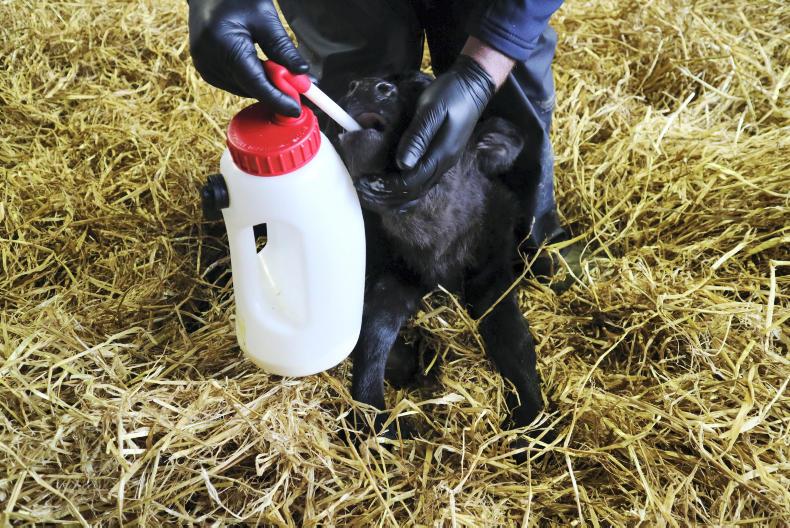Whatever hygiene means to you, it is important that we embrace it on the farm.
Most of our disease challenges are bacteria and viruses. Hygiene helps to limit their numbers and reduce their spread.
Read these tips and reflect on the areas you can improve on your farm.
1. Wash your hands after a long day’s work and wear gloves where necessary. Sometimes advice can seem over the top, but at lambing and calving time, gloves are a must. They both protect you and the animal's birth canal. When thinking about the milking routine, gloves are easier to clean and prevent the spread of infection.
2. Hot water source in the neonatal area: you should have a boiling water source where calves and lambs are being housed. Boiling water is as effective as most measures to reduce a bacterial buildup on equipment.
3. Clean calving equipment regularly, particularly calving ropes and occasionally clean the calving jack.
4. You should have two stomach tubes on your farm, one dedicated to the newborn requiring colostrum tubing and the other for administering fluids/medications to sick animals.
5. A working footbath at the entry point of the farm is necessary to prevent visitors bringing infections in on their clothing. A general disinfectant should suffice here but this needs to be clearly marked and also make people use it. Some farms will have their own wellingtons and overalls for lambing and calf houses. Visitors must put these on when entering.
6. Remember most of the bugs are in the dung when cleaning out at housing. Some pathogens can last longer than others in the environment, with coccidia and crypto lasting a year or more. Break that cycle by thoroughly cleaning and disinfecting with appropriate products for different challenges.
7. Plenty of fresh air is a must at housing time. Did you know that fresh air contains ozone which is a natural disinfectant that kills virus and bacteria in it? Maximise fresh air around stock to maximise nature's most effective free disinfectant.
8. Teat dips match the dip to the challenge. Remember the 3Vs; the correct volume, viscosity and visually check that it covers the teat. There is a lot of science to teat dips so choosing the right one is important.
9. A proper hand sanitiser is a must in the home. Where there are old, sick or the young indoors, make sure you have something to clean up before you go back indoors. Yes, it is a bit like mammy telling you to wash your hands.
10. Footbaths for minimising lameness in stock need to be done regularly. People get obsessed with what chemicals we use but regular footbaths with the correct volume can make a big difference. Something like copper sulphate often does the job.
11. Clean water bowls regularly. Remember, in big pens with one drinker, this is where every animal goes several times of day. If this is contaminated with faeces, it can be a real problem especially with younger stock.
12. Move feeders outside to avoid a buildup of real mucky areas. This can be a big problem, particularly with young calves and lambs being fed and reducing the spread of coccidiosis.
13. Where ring feeders are being used, clean out regularly to avoid a buildup of stale silage in the bottom. This is an area common to listeria at this time of year.
14. Use plastic penning where possible with young animals and a surface that can be easily cleaned and disinfected between groups.
15. Give navels of the newborn a good drenching or washing in a chlorhexidine/iodine-based solution.
16. Have stainless steel or plastic buckets in hot water and Milton to clean all calf and lambing utensils.
17. Use a clean needle where possible for injections. Dirty needles do more damage than we think.
18. Clipping tails and synging udder hair can make a difference at housing to keep udders clean. Tail clipping is a must particularly around calving, where a lot of udder hair builds up, particularly in dairy cows.
19. Keep your feed stores secure. Diseases that cause abortion can be spread by cat and dog faeces. Keeping wildlife like badgers out of feed stores in the winter is one way to reduce TB risk.
20. Clean and disinfect calving and lambing pens regularly. You will have few animals on your farm more susceptible to infection than the newborn. Birthing pens should never be used to house sick animals.
With lots of animals in houses for winter and as calving and lambing approaches, now is a key time to read this and reflect.
Small changes can make a big difference.






 This is a subscriber-only article
This is a subscriber-only article









SHARING OPTIONS: